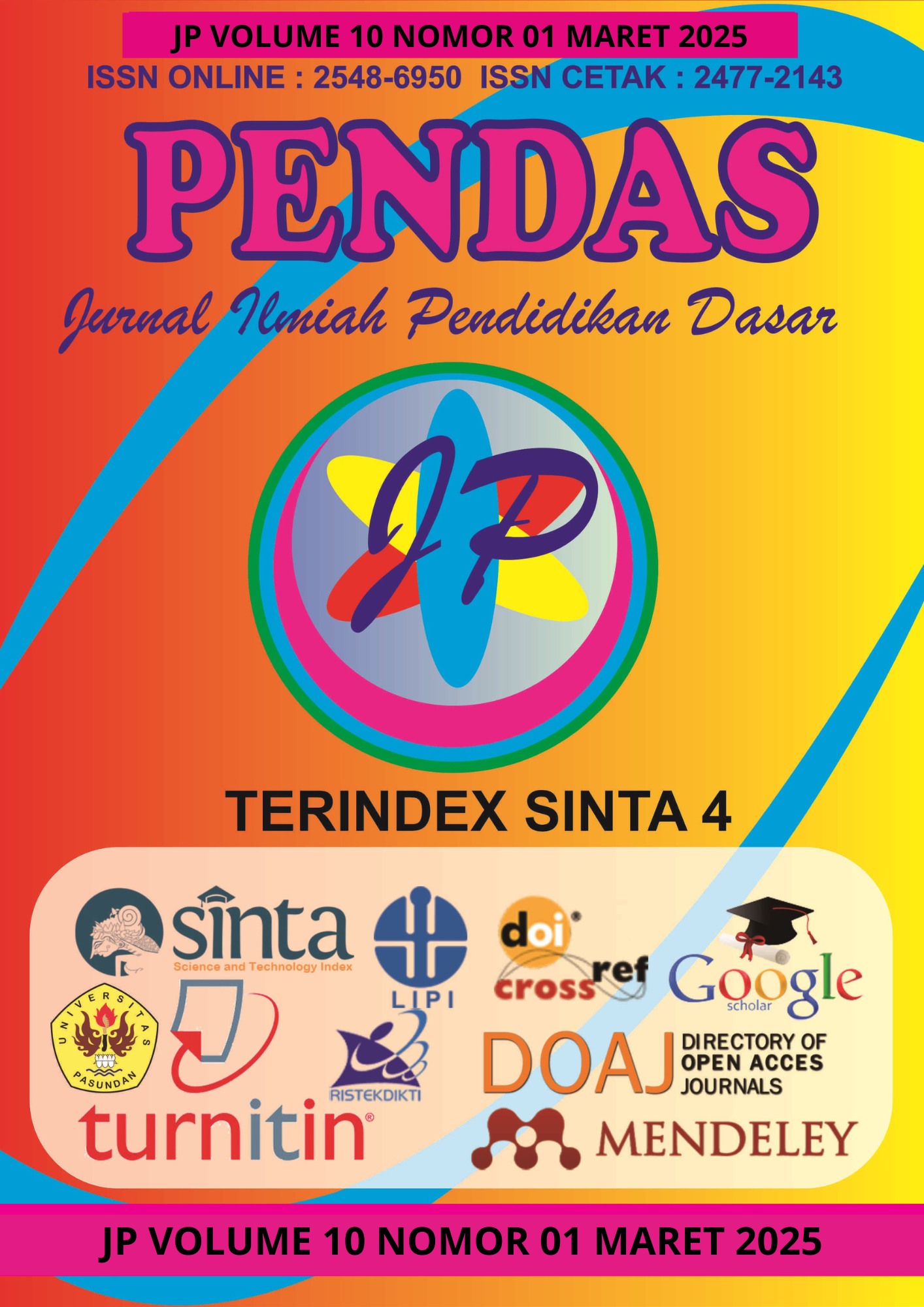MODELING EFFECTIVE PRESENTATION COMMUNICATION SKILLS FOR ENGLISH EDUCATION STUDENTS
DOI:
https://doi.org/10.23969/jp.v10i01.22605Abstract
Effective presentation communication skills are essential for English education students, as they play a significant role in academic success and professional development. This study explores key components that contribute to effective presentation skills, including confidence in speaking, clear and effective use of English, good pronunciation and intonation, logical responses to questions, audience interaction, and the use of technology. Using a qualitative research approach, in-depth interviews were conducted with 20 English education students at the University of Nias. The findings highlight the challenges students face, such as nervousness, language difficulties, and limited audience engagement strategies. The results suggest that practicing regularly, receiving feedback, watching professional presentation videos, joining public speaking clubs, using voice/video recordings, and improving vocabulary through daily conversations are effective strategies for enhancing presentation skills. These findings provide valuable insights for curriculum development and future training programs aimed at equipping students with the necessary skills to deliver impactful presentations. Future research can explore the impact of specific teaching methodologies on students’ presentation effectiveness.
Downloads
References
ADDIN Mendeley Bibliography CSL_BIBLIOGRAPHY Afriana, riza devi. (2017). Strategi Pelatihan Publick Speaking Course Dalam Membangun Kepercayaan Diri Studi Kasus Pada Mentee Kalangan Remaja Di Bicara Pede Academy. Angewandte Chemie International Edition, 6(11), 951–952., 6(November), 5–24.
Asiva Noor Rachmayani. (2015).
Aswar, N. (2022). Peningkatan Keterampilan Berbicara melalui Penerapan Pembelajaran Metode Diskusi Kelas pada Siswa Kelas V Sekolah Dasar. Jurnal Konsepsi, 11(1), 202–214.
Brown, G., & Yule, G. (1985). Discourse analysis. Cambridge: Cambridge University Press. Journal of Linguistics, 21(1), 241–245.
Brown, H. D. (2007). P R I N C I P L E S of L A N G UAG E L E A R N I N G AND TEACHING A COURSE IN SECOND LANGUAGE ACQUISITION.
Clark, R. C., & Lyons, C. (2011). Graphics for Learning: Proven Guidelines for Planning, Designing, and Evaluating Visuals in Training Materials. John Wiley & Sons.
Gilakjani, A. P. (2016). English Pronunciation Instruction: A Literature Review - International Journal of Research in English Education. Ijree, 1(1), 1–6.
Isaee, H., & Barjesteh, H. (2022). Book Review: The Art of Public Speaking. October, 89–94.
Maldini, F. C. (2021). Penggunaan YouTube BukaTalks sebagai Media Pembelajaran Keterampilan Berbicara Siswa Kelas XI SMA Negeri 1 Kalibunder Kabupaten Sukabumi Tahun Pelajaran 2020/2021. FITK UIN Syarif Hidayatullah, 1–211. https://repostitory.uinjkt.ac.id/dispace/handle/123456789/57897
Michaelson, S., & Rahim, S. (2023). Communication skills training in psychiatry. BJPsych Advances, 29(1), 56–67. https://doi.org/10.1192/bja.2021.80
Miller, K. (2015). Organizational Communication: Approaches and Processes Seventh Edition. Reputation Management: The Key to Successful Public Relations and Corporate Communication, 153–182.
Novitasari, H., Syafryadin, S., & Sofyan, D. (2022). The Rhetorical Structure of Students’ Presentation in Speaking Class. ENGLISH FRANCA : Academic Journal of English Language and Education, 6(2), 263. https://doi.org/10.29240/ef.v6i2.5451
Pokhrel, S. (2024). No TitleΕΛΕΝΗ. Αγαη, 15(1), 37–48.
Richards, J. C., Panahi, A., & Mohebbi, H. (2023). Reflecting on Jack C. Richards’ 60 Years in TESOL: A Systematic Review. Language Teaching Research Quarterly, 33, 4–67. https://doi.org/10.32038/ltrq.2023.33.02
Rika Widianita, D. (2023). Title. AT-TAWASSUTH: Jurnal Ekonomi Islam, VIII(I), 1–19.
Sembiring, K. B., Malau, Y. T. C., & Harahap, S. H. (2024). Inovasi Pemikiran: Meningkatkan Kemampuan Berbicara dan Menulis di Era Digital. IJEDR: Indonesian Journal of Education and Development Research, 2(1), 432–444. https://doi.org/10.57235/ijedr.v2i1.1800
Siswanto, D. H., Alam, S. R., & Setiawan, A. (2024). Meningkatkan Kemampuan Berbicara Pengurus Ikatan Pelajar Muhammadiyah SMA Muhammadiyah Melati melalui Pelatihan Public Speaking. Jurnal Solusi …, 4(2), 61–66.
Syahrir, & Manghayu, A. (2015). Analisis Ethos, Pathos, dan Logos Kepemimpinan Susilo Bambang Yudhoyono (SBY). Jurnal MP (Manajemen Pemerintahan), 1(Juni 2015), 11.
Telaumbanua, Y. A., Harefa, W. A., Yanti, T., Gea, N., & Laoli, O. C. (2024). Students ’ Perceptions of Social Media Confidence Versus Classroom Social Anxiety. 8(2), 211–217.
Ulya, S. F., Sukestiyarno, Y., & Hendikawati, P. (2018). Random Sampling Confidence Interval. UNNES Journal of Mathematics, 7(1), 108–119.
Ummah, M. S. (2019).Title. Sustainability (Switzerland), 11(1), 1–14. http://scioteca.caf.com/bitstream/handle/123456789/1091/RED2017-Eng-8ene.pdf?sequence=12&isAllowed=y%0Ahttp://dx.doi.org/10.1016/j.regsciurbeco.2008.06.005%0Ahttps://www.researchgate.net/publication/305320484_SISTEM_PEMBETUNGAN_TERPUSAT_STRATEGI_MELESTARI
Downloads
Published
Issue
Section
License
Copyright (c) 2025 Pendas : Jurnal Ilmiah Pendidikan Dasar

This work is licensed under a Creative Commons Attribution 4.0 International License.














































